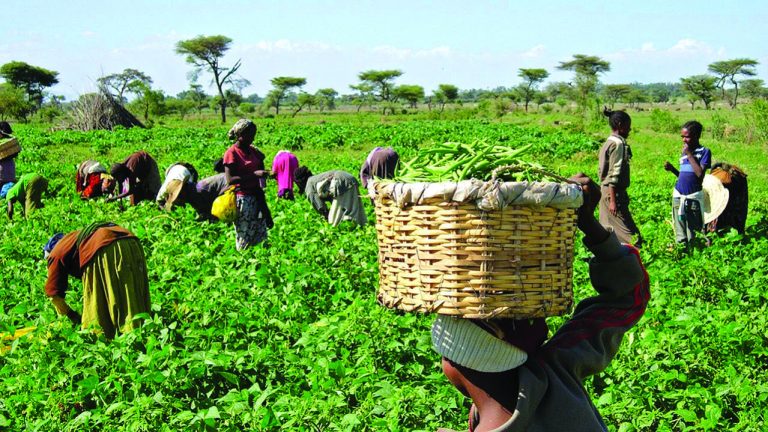Experts have proposed integrating agroecology into Nigeria’s agricultural policies as a sustainable approach to addressing food insecurity and climate change.
The proposal was made on Tuesday in Ibadan during a one-day practical agroecology training for farmers themed “Solving the Food and Climate Crises.”
Prof. Olugbenga Adeoluwa of the Department of Soil Resources Management, University of Ibadan, said the training aimed to bridge the gap between healthy food production, climate-resilient practices, and farmers’ everyday activities.
“Agroecology is the way forward for farming in Nigeria. Farmers are already facing challenges caused by climate change, unpredictable rainfall, pest invasion, and planting delays. Agroecology provides solutions, but farmers must first understand and be trained on its practices,” Adeoluwa said.
He explained that participants learned practical agroecological techniques such as soil management, natural pest control, and reduced chemical dependence, which they could immediately implement on their farms.
“It doesn’t take time. Once they return to their farms, they can start applying these practices,” he added.
Adeoluwa urged governments at all levels to replicate the training nationwide and integrate agroecology into agricultural extension services. He stressed the importance of linking farmers to markets, noting, “If they produce and nobody buys, it amounts to nothing.”
He also called for policy inclusion, public investment, and research support for agroecological farming, highlighting its alignment with environmental health.
“Agroecology is about working with nature: using biological and social components in farming while avoiding hazardous chemicals and genetically modified organisms (GMOs),” he said.
Mr. Barnabas Iwan, Farm Manager (Production), Be the Help Foundation Agroforestry, said the initiative was designed to help farmers reduce input costs and boost productivity using local resources.
“The greatest challenge farmers face is the high cost of chemical fertilizers and pesticides. Agroecology teaches farmers to produce their own fertilizers and pest control inputs from materials around them,” he explained.
Iwan noted that adopting agroecological methods could restore soil fertility, improve yields, and promote ecological balance. “When you use chemicals, you destroy the soil and atmosphere. With agroecology, you improve the soil, sustain the climate, and create a balanced ecosystem,” he said.
Ms. Esele Ojeanelo, Project Assistant at the Health of Mother Earth Foundation (HOMEF), said the training sought to promote food sovereignty and climate justice in Nigeria.
Ojeanelo expressed concern over the increasing adoption of GMOs in Nigeria, warning that they threaten soil health, biodiversity, and human health.
“GMOs destroy soil microorganisms and have been linked to health complications such as infertility and birth deformities. Countries with advanced health systems are banning GMOs; Nigeria cannot afford to embrace them,” she said.
She urged the government to halt GMO approvals and promote agroecology as a safer, sustainable alternative that empowers smallholder farmers.
The training brought together farmers, researchers, and environmental advocates to demonstrate practical agroecological methods, emphasising soil health, organic composting, and chemical-free pest management.


